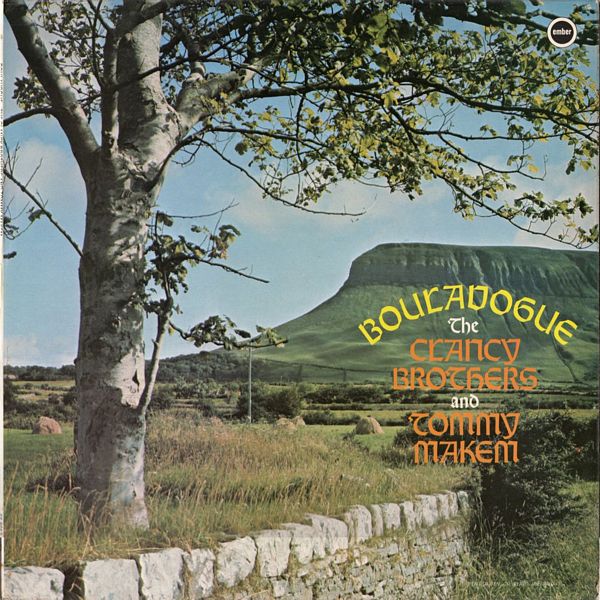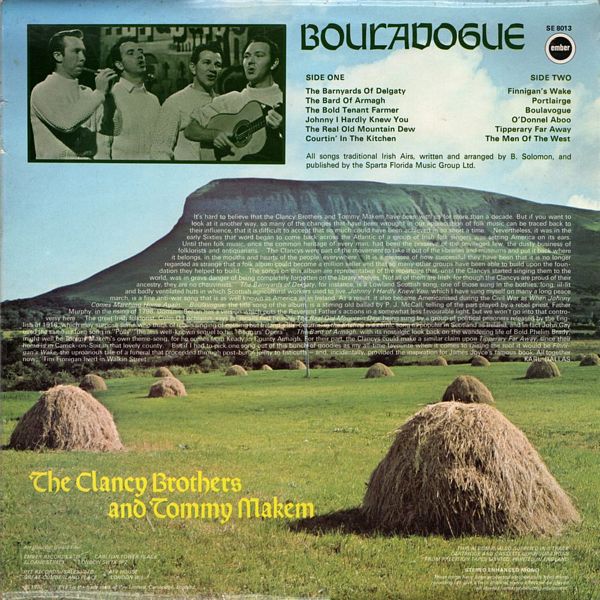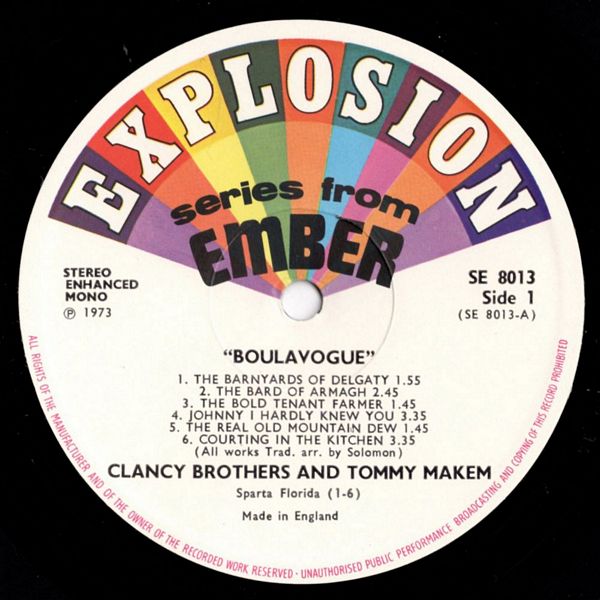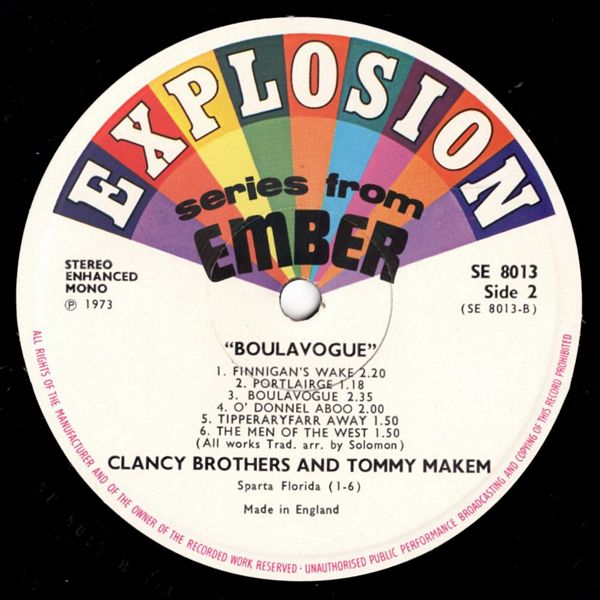

 |


 |
Sleeve Notes
It's hard to believe that the Clancy Brothers and Tommy Makem have been with us for more than a decade. But if you want to look at it another way, so many of the changes that have been wrought in our appreciation of folk music can be traced back to their influence, that it is difficult to accept that so much could have been achieved in so short a time.
Nevertheless, it was in the early Sixties that word began to come back across the Atlantic of a group of Irish folk singers was setting America on its ears. Until then folk music, once the common heritage of every man, had been the preserve of the privileged few, the dusty business of folklorists and antiquarians.
The Clancys were part of the movement to take it out of the libraries and museums and put it back where it belongs, in the mouths and hearts of the people, everywhere.
It is a measure of how successful they have been that it is no longer regarded as strange that a folk album could become a million seller and that so many other groups have been able to build upon the foundation they helped to build.
The songs on this album are representative of the repertoire that, until the Clancys started singing them to the world, was in grave danger of being completely forgotten on the library shelves. Not all of them are Irish, for though the Clancys are proud of their ancestry, they are no chauvinists.
The Barnyards of Delgaty, for instance, is a Lowland Scottish song, one of those sung in the bothies, long, ill-lit and badly ventilated huts in which Scottish agricultural workers used to live. Johnny I Hardly Knew You, which I have sung myself on many a long peace march, is a fine anti-war song that is as well known in America as in Ireland. As a result, it also became Americanised during the Civil War as When Johnny Comes Marching Home Again.
Boulavogue, the title song of the album, is a stirring old ballad by P. J. McCall, telling of the part played by a rebel priest, Father Murphy, in the rising of 1798. Dominic Behan has a version which puts the Reverend Father's actions in a somewhat less favourable light, but we won't go into that controversy here.
The great Irish folklorist, Colm O Lochlain, says he recalls first hearing The Real Old Mountain Dew being sung by a group of political prisoners released by the English in 1916, which may surprise some who think of rebels singing of nothing but Ireland's ills. Courtin' in the Kitchen as popular in Scotland as Ireland, and in fact John Gay used the same air for a song in "Polly", the less well-known sequel to his "Beggars Opera".
The Bard of Armagh, with its nostalgic look back on the wandering life of Bold Phelim Brady, might well be Tommy Makem's own theme-song, for he comes from Keady in County Armagh. For their part, the Clancys could make a similar claim upon Tipperary Far Away, since their home is in Carrick-on-Suir in that lovely county.
But if I had to pick one song out of this bunch of goodies as my all-time favourite when it comes to raising the roof it would be Finnigan's Wake, the uproarious tale of a funeral that proceeded through post-burial jollity to fisticuffs — and, incidentally, provided the inspiration for James Joyce's famous book. All together now: Tim Finnigan lived in Walkin Street…
KARL DALLAS